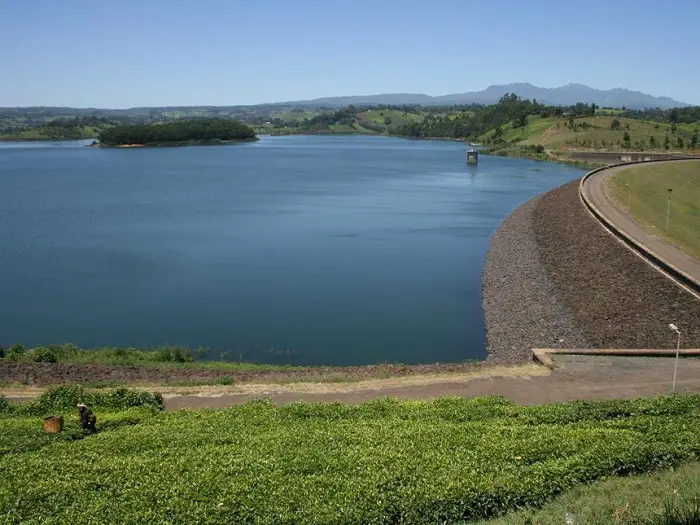Nairobi residents in Kenya will continue grappling with water rationing until 2026 when more dams will be completed. According to Nairobi Water and Sewerage Company’s acting managing director Engineer Nahashon Muguna, Ndakaini dam’s storage has fallen by 49% to 34 m cubic metres which has resulted in low water supply to Nairobi.
Also read:Construction of US $37m Gidabo Irrigation Dam in Ethiopia nears completion
“Water rationing is set to continue until that time when the dams we are currently building are complete. According to the master plan of water sources development in the city, it will be done by 2026 thereafter there will be enough water and surplus to take us up to 2035,” he said.
Ndakaini dam produces 430,000 cubic metres of water a day, which is about 84% of water supply to Nairobi residents and holds about 70,000,000 cubic metres at full storage.
Long term mechanism
“We are supplying the city with 525,000 cubic metres of water a day against a demand of 760,000 cubic metres a day. However, we are working with the national government to come up with measures to ensure that the county gets sufficient water through both long term and short-term mechanism,” Eng Muguna said. The water problems are as a result of drought, degradation of catchment, and global warming which has contributed to erratic weather patterns and inadequate rains.
On short-term basis, the county is banking on the Northern Water collector tunnel project, set to be complete by 2020 which is expected to boost the county with an additional 140,000 cubic litres.
“Once the project is completed, we will raise the supply of water in the county to 665,000 cubic litres a day up from the normal supply of 525,000 cubic litres,” he said. Two more dams currently under construction, are also set to boost water supply in the city by 60,000 cubic litres a day by the same year, 2020.

